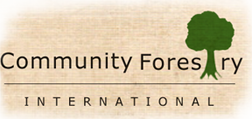2011-13 Asia REDD Working Group (ARWG)
CFI organized and facilitated annual networking meetings in response from PES/REDD project developers, NGO, donors, policy makers, and national governments in South and Southeast Asia to share information and resources. Five countries participated in the meetings: Bangladesh, Cambodia, India, Indonesia, and the Philippines. ARWG members overwhelmingly felt that the information presented and shared helped impact their progress in developing PES/REDD projects. One of the outcomes of ARWG, was the drafting of 10 principles for community-based PES/REDD projects.
10 Principles for Community-based PES & REDD Project Design
Approved by the Asia REDD Working Group 2013
Payment for Ecosystem Services (PES) for Communities
2013 Annual Meeting in Jakarta, Indonesia
Rethinking REDD: Benefitting the Environment & Forest People
2012 Annual Meeting in Katmandu, Nepal
Developing Community-based REDD Projects in Asia
2011 Annual Meeting in Delhi, India
2009-12 Khasi Hills REDD Project, India
CFI worked with the Khasi communities in the East Khasi Hills to design a REDD (Reducing Emissions from Deforestation and Forest Degradation) project. The Khasi Hills REDD Project is India’s first community-based REDD project with projections of 318,246 tons of CO2 offsets over ten years, plus additional benefits including biodiversity, cultural conservation, and poverty alleviation. The project is located in a critical watershed for the area. The indigenous Khasi community has formed a Federation of 10 kingdoms to expedite the project, with clear lines of communication, decision making, and management organization to mobilize mitigation activities. The project area has unique montane cloud forest ecosystems with 500-year old sacred groves riddled with standing stone megaliths that serve as environmental protection for some of the old-growth forests and the rich biodiversity of the area. It is currently certified and registered by Plan Vivo, UK and is selling carbon credits internationally. Annual revenue from carbon sales and other PES projects will help the project be self-sustaining.
2009-12 Cambodia’s Contested Forest Domain: The Role of Community Forestry in the New Millennium
CFI spent three years compiling information based on its project in Cambodia from 2002-2009. The book was published in 2013 by Ateneo de Manila University Press, Philippines, and includes chapters by experts in the field of community forestry, forest management, and anthropology.
2008-09 Oddar Meanchey REDD Project, Cambodia
CFI worked with the Forestry Administration and Terra Global Capital to design a REDD (Reducing Emissions from Deforestation and Forest Degradation) project. In 2012, it received dual certification under the Voluntary Carbon Standard (VCS) and Climate, Community, and Biodiversity (CCB). The project is Cambodia’s first REDD project and will support 13 community forestry groups and 8,000 households. The project is expected to generate 8.2 million tons of carbon over the projected 30-year cycle conserving and restoring 65,000 hectares of land.
2002-08 Community Forestry in Cambodia
CFI established a local office in Phnom Penh to implement its community forestry project in Cambodia. CFI assisted the National Community Forestry Program, supported communities through its small and micro-grant program, helped build the capacity of indigenous groups in Ratanakiri province, did numerous community forestry trainings, helped create livelihood opportunities, and co-designed the first forest carbon REDD project in Oddar Meanchey province.
2002-08 Community Forestry in Northeast India
CFI established a local office in Shillong, Meghalaya to implement its community forestry project in northeast India. In first phase of the project (2002-05), CFI worked with forest departments and researchers in each of the seven states to compile data on community forestry activities. In the second phase (2005-08), CFI worked with the local Khasi communities in Meghalaya and the Naga and Kuki communities in Manipur to build their institutional and technical capacity to implement community forestry. Women-run Self-help Groups were established to insure gender equity and increase livelihood revenue.
2002-05 Regional Community Forestry Support Project
CFI and the Asia Forest Network organized a series of field projects, annual workshops and meetings for NGOs and forestry officials representing five countries: Cambodia, Indonesia, Philippines, Thailand and Vietnam.
2002-03 Formation of a Self-help Group Federation, Andhra Pradesh, India
CFI documented the women-run Self-help movement in Adilabad District, Andhra Pradesh, India. Starting as village groups, the women-run livelihood groups eventually formed cluster-groups and then a Federation that helped galvanize support and resources for their movement. These nascent organizations provided new vehicles to empower some of India’s poorest and most exploited communities. Self-help Groups or SHGs take the form of village cluster organizations and sub-district level federations, providing a sustainable infrastructure for the small groups of 10 to 15 women who comprise each SHG. SHGs now possess over several hundred million dollars in assets in the state of Andhra Pradesh alone, and are gradually displacing moneylenders and middlemen as primary sources of capital in the rural economy. CFI published a study focusing on the development of these apex bodies, documenting how those organizations secured and managed watershed restoration contracts from inter-agency bodies that were created to coordinate national and international investments targeting rural poverty problems.
2001-03 Applicability of CDM protocols under the Kyoto Protocol in Adilabad District, Andhra Pradesh and Harda District, Madhya Pradesh, India
CFI collaborated with the Indian Institute of Science to evaluate a series of potential CDM sites to assess their eligibility in terms of the emerging Clean Development Mechanism (CDM) forest project parameters of the Kyoto protocol. In selected areas, social and ecological appraisals were carried out to assess institutional capacities for project implementation as well as to evaluate vegetation conditions and the potential for carbon sequestration under a variety of CDM scenarios. CFI evaluated techniques for vegetative sampling for establishing carbon baselines, estimating carbon additionality, and creating CDM project scenarios for community-based afforestation and reforestation projects.
